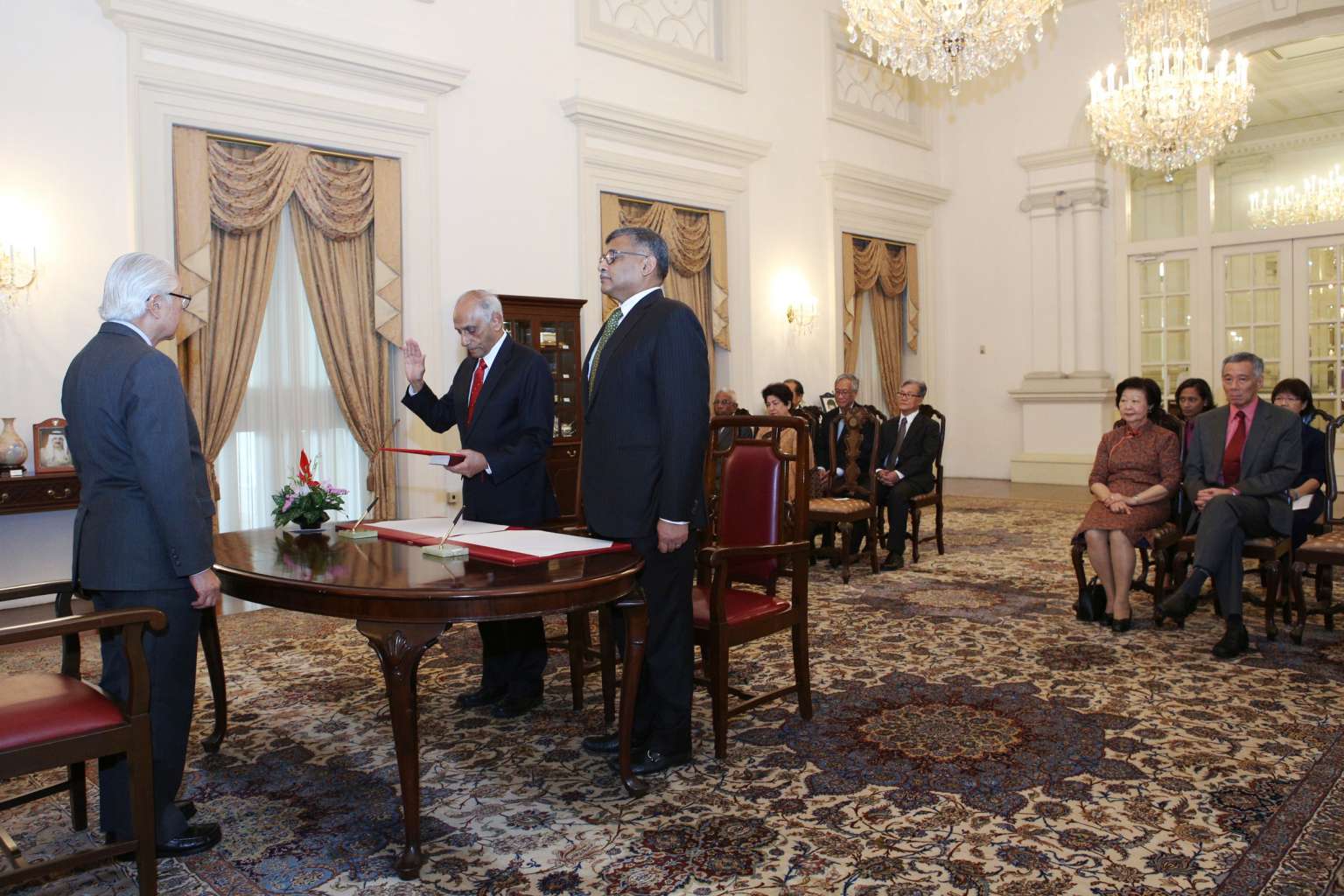Elected presidency report: Greater role for Council of Presidential Advisers
Sign up now: Get ST's newsletters delivered to your inbox

Mr J.Y. Pillay taking his oath during the swearing-in ceremony after being re-appointed the chairman of the Council of Presidential Advisers by President Tony Tan Keng Yam on Jan 2, 2015.
PHOTO: MCI
SINGAPORE - The Constitutional Commission wants the Council of Presidential Advisers (CPA) to be expanded and for its views to be given greater weight in a clash between the President and Government.
The Commission's report, released on Wednesday (Sept 7), also recommended that for all fiscal matters and public service appointments, the President must consult the council before exercising his veto. Currently, the President needs to do so for some such matters only.
The commission also suggested simplifying the current system on when Parliament can or cannot override a Presidential veto.
There is "no ready explanation" why a Parliamentary override is available in some cases but not others, said a report it released on Wednesday.
It recommends making it a requirement for the President to consult the council before exercising his veto in all fiscal matters relating to Singapore's reserves, and all public service appointments.
When the council disagrees with the President, Parliament can override the veto.
But how large a parliamentary majority is needed to override a veto?
In coming to a decision, the commission wants the Council's views to be given more weight.
"Put simply, the stronger the CPA's support for the President's decision, the more difficult it should be for Parliament to undo that decision," it said.
Currently, Parliament cannot override a veto if a majority of CPA members agree with the President. This includes situations where the Chairman casts a tie-breaking vote.
The Commission has proposed that in such tiebreakers, Parliament can override the veto with a two-third majority.
However, when a majority of council members disagree with the President, Parliament can override a veto more easily. Instead of the current two-thirds majority, a simple majority should suffice, said the Commission.
In line with its prospective bigger role, the council should have two more members, bringing the total to eight.
The length of their term of service should be increased as well.
Now, members are appointed for six years and can be reappointed for four-year terms.
The Commission recommends that on re-appointment, the term should also be for six years.

It also called for guidelines on who qualifies to sit on the council.
They must be persons of "integrity, good character and reputation", with expertise in fields relevant to the President's powers, such as in senior government positions, law or accounting.
Each member should add to the Council's diversity of experience as a collective body.
There is no need to set out more prescriptive criteria, said the commission.
The reason: Council members are not elected but appointed by the President, Prime Minister, Chief Justice or the Chairman of the Public Service Commission, "all of whom can be expected to exercise the requisite judgment as to the appointee's suitability and experience".
For greater accountability, in all situations when the President must consult the Council and his veto is open to a parliamentary override, the Council should have to disclose to the President the votes of each member and the grounds for the Council's advice, said the report.
The President should also have to make public his opinion if he vetoes government action and this veto is open to a Parliamentary override.
To remove uncertainty, the Commission set a six-week deadline for the President to indicate whether he agrees or disagrees with a government proposal, or to perform a required task - in cases where his refusal is open to a parliamentary override.
After the deadline, he is deemed to have agreed or performed the task.


